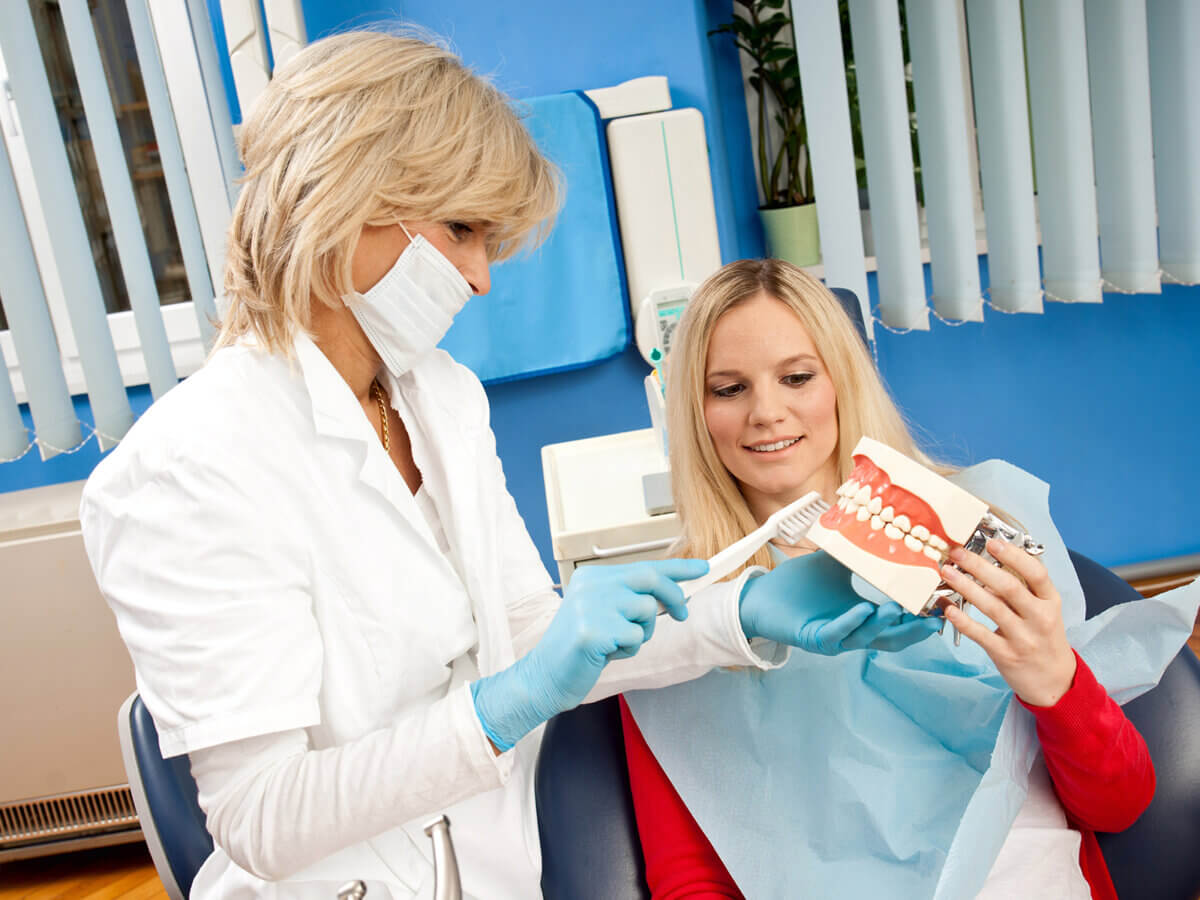Blog
Dental hygiene tips for healthy teeth & gums

How to clean dentures properly to ensure maximum longevity?
Dentures are a fabulous way to improve your smile by replacing missing teeth. They are false teeth that are designed in such a way that they look as natural as your teeth. They are made using many different kinds of materials, such as acrylic, metal, etc.
But false teeth do not mean you do not need to take care of them. Cleaning them has to be an essential part of your daily routine. However, cleaning dentures is slightly different from cleaning your natural teeth as it requires a few more steps than just brushing. Hence, if you take appropriate care of your dentures they can last anywhere between five to ten years.
Things Needed to Clean Dentures
Whether it is natural teeth or dentures, plaque, and food particles would stick to them in a similar fashion. Dental plaque is nothing but sticky bacteria that forms on your teeth after you eat or drink anything. If this plaque is not cleaned properly, it will result in bad breath, gum disease, and other dental complications you do not want to deal with.
You would need the following items for cleaning your dentures thoroughly:
- Denture brushes (a soft-bristled toothbrush also does a good job)
- Dental cleaning solution (you could also use mild soap)
- Water
- A soft towel
How to Clean Your Dentures
You can find stepwise instructions to clean your dentures below:
- Keep a soft towel on the bathroom counter – On your bathroom counter, place the soft towel before removing your denture. This way, even if the denture falls accidentally, the soft towel would provide a cushion to protect them.
- Remove dentures – After removing them, rinse them with warm water.
- Brush dentures – Use the soft-bristled toothbrush to gently brush them, loosening and removing food particles, bacteria, and plaque from them. Make sure you are cleaning all areas around them. Brushing also aids in loosening and removing denture adhesives.
- Rinse dentures – Once you are done brushing the dentures, rinse them again with warm water.
- Soak the dentures – If after washing them, you plan to go to bed, then soak them either in a denture solution or warm water so that they do not dry up. If dentures dry out, they become brittle and also lose their shape. But a word of caution here is to not soak them in hot water, as heat can alter the shape of it’s material.
- Rinse them before wearing them the next morning.
Things to Keep in Mind While Handling Your Dentures
Here are a few things which, if you follow religiously, will ensure you have healthy-looking dentures that have maximum longevity.
- After eating, remove and rinse dentures – After you eat, run water over them so that any food debris or other loose particles fall out. Make sure you have a soft towel on your bathroom counter in case they accidentally slip out of your hands.
- Be careful with your dentures – While cleaning them, ensure you do not damage the clasps or plastic by bending it or any other harsh treatment.
- Always clean your mouth after removing them – Clean your cheeks, tongue, and palate (roof of your mouth). You could use a soft-bristled toothbrush to clean natural teeth, and for cleaning other areas of the mouth, use a soft toothbrush or gauze. If there are any denture adhesives in your mouth, remove them too.
- Brush them daily – You should remove and gently clean them daily. If you use dental adhesive, then you pay extra attention to the grooves that fit against your gums. Never use denture cleaners inside your mouth.
- Rinse dentures thoroughly – If you use denture cleaning solutions, rinse them properly before putting them back in your mouth. The denture cleaning solutions contain harmful chemicals which can cause burns or vomits if it goes inside your mouth.
Apart from all the care instructions outlined above, it is important to visit your dentist regularly while using them. Your dentist can set up a schedule on how often you should meet him or her. By visiting your dentist regularly, you can ensure that they fit you properly, are not misaligned, and do not get loose and fall off.


